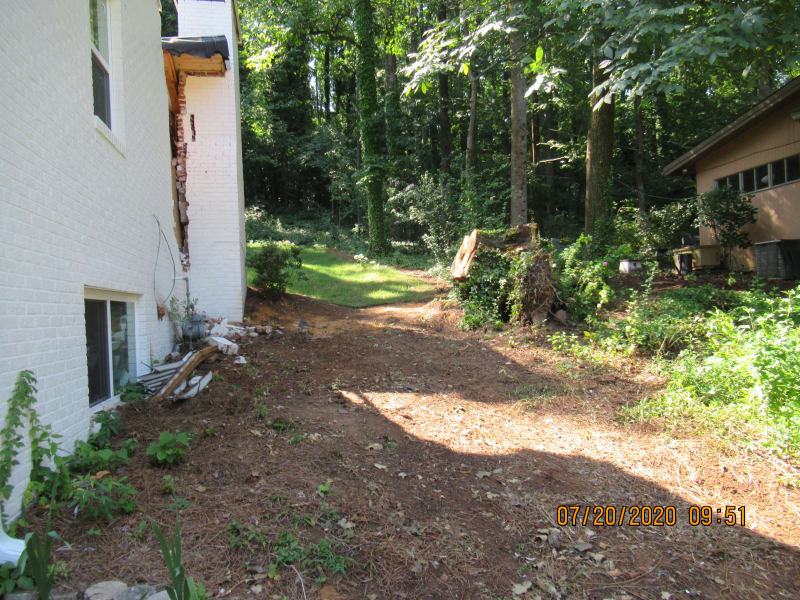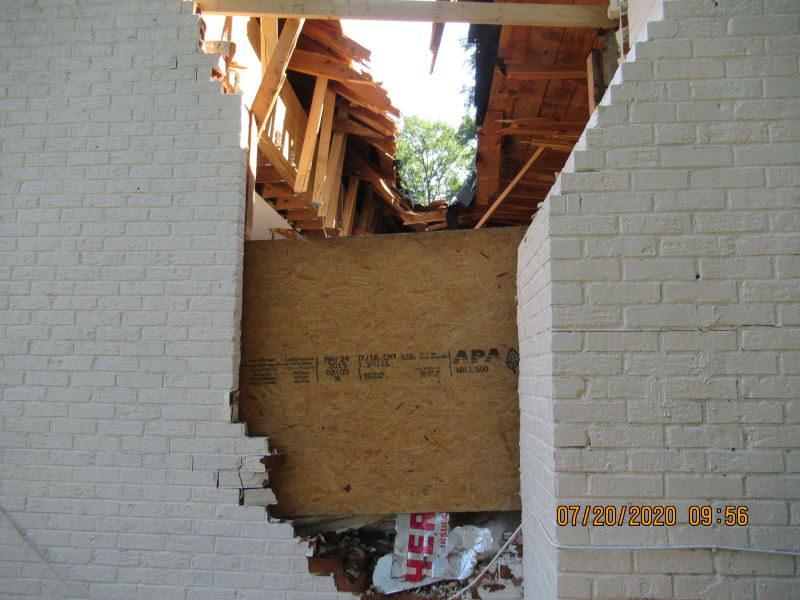mferg318
Structural
- Oct 26, 2017
- 10
I'm inspecting the foundation of a home that was damaged by (2) oak trees that fell on it during a hurricane last year. The roof and walls were significantly damaged. I am trying to determine if any of the cracking and settlement of the slab are a direct result of the falling trees. The insurance company has agreed to pay for all damage except for the foundation, because they claim the foundation issues pre-existed the storm damage. One idea I have is to calculate the force of the falling trees and determine if that force is indeed large enough to induce shear failure in a slab-on-grade. Anyone have experience with this type of situation or with this particular calculation?


